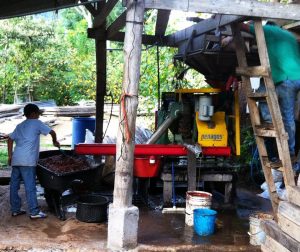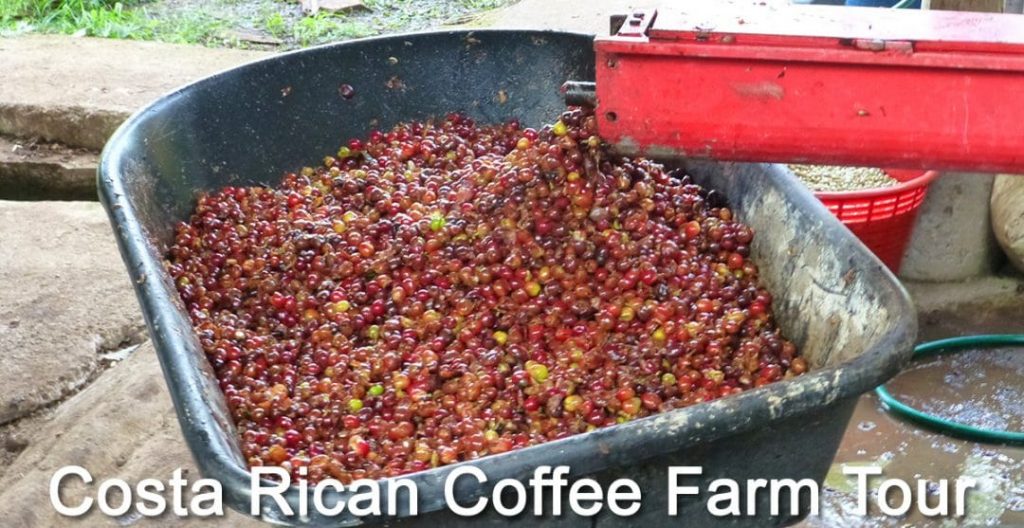The El Toledo Permaculture Coffee Farm tour was one of the highlights of our visit to Atenas, Costa Rica. Gabriel, one of the owners, gave us a great coffee education, showed us their operation, and explained to us about their farming practices.
He used a wooden tray filled with green coffee beans as a visual aid. We were encouraged to ask questions. A couple of our fellow tourists even booked a day of volunteering to come up and help with the harvesting of the coffee berries.

In this process they lost a large portion of their income and family members had to resort to other trades for the five years it took to get the farm up to production. These days he teaches his neighbors about permaculture and encourages them to make the transition more gradually so that they can continue to support their families.
He shared that they now feed the family largely from their own garden and roast their own beans and sell their coffee locally. They have less of a need for income now that they can feed themselves. And his papa is healthy and strong again, selling the beans each week at the local farmers markets.
The cool weather and gorgeous views in the hills just beyond Atenas were a delight, as was this warm and loving Tico family. Working with nature, they have been able to sustain yields while at the same time improving the land, and improving their lives as well as the lives of their family and neighbors. We are so glad we had a chance to share time with them.

